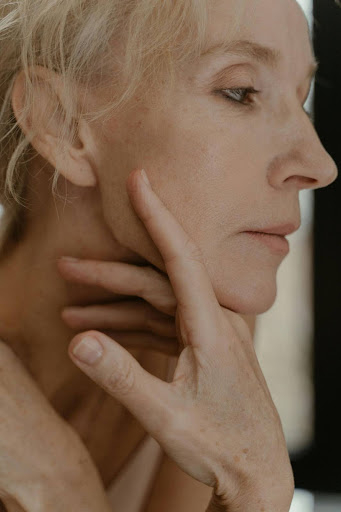What If Ageing Isn’t Fixed?
Imagine this: you wake up in your 70s feeling more energised, focused, and mobile than you did in your 40s.
Does that sound like science fiction?
Actually, it’s science future. And it’s already happening.#
For decades, ageing was treated as an unavoidable decline. Wrinkles, fatigue, slower recovery, and chronic disease were simply accepted as part of life. But that narrative is changing.
Thanks to cutting-edge research into cellular health, scientists are beginning to understand ageing not as a fixed process, but as something we can influence, and even slow down.
At the heart of this new understanding lies one key principle: it’s not just about living longer. It’s about staying healthy longer.
The Science of Longevity: What We Know Now
So what exactly is the science telling us?
1. Ageing Begins in Your Cells
We now know that ageing is largely driven by molecular and cellular dysfunction:
- DNA damage and reduced repair
- Mitochondrial decline (the energy factories in your cells)
- Chronic inflammation (inflammageing)
- Accumulation of senescent “zombie” cells
- Decreased sirtuin activity (key regulators of metabolism and DNA repair)
These cellular changes don’t just make us feel older, they’re linked to every major age-related disease, from heart conditions to neurodegeneration.
2. Sirtuins: The Longevity Proteins
A major breakthrough in anti-ageing science has been the discovery of sirtuins, a family of proteins that play a vital role in:
- DNA repair
- Mitochondrial function
- Gene expression
- Inflammation control
The problem? Sirtuin activity declines as we age.
Boosting these proteins is now a key focus of health research, and this is where certain natural molecules, like resveratrol, come into play.
The Role of Pure Resveratrol in Healthy Ageing
What is Resveratrol?
Resveratrol is a natural compound found in red grapes, berries, and some plants. It’s a polyphenol, a type of antioxidant that protects cells from damage.
But what makes Pure Resveratrol particularly exciting for researchers is its ability to activate sirtuins, particularly SIRT1, the so-called "longevity gene."
In a landmark study published in Nature, resveratrol was shown to mimic the effects of calorie restriction, extending lifespan in yeast, mice, and other organisms by improving mitochondrial function and cellular resilience. (Baur et al., 2006)
Why DoNotAge.org’s Resveratrol Stands Out
At DoNotAge.org, our commitment goes far beyond selling a product.
✅ We are a Health Research Organisation.
✅ We sell ingredients, not supplements.
✅ Our Pure Resveratrol is used by longevity researchers in clinical trials, not just recommended or “trusted.”
✅ We lead these trials, working to push the boundaries of what’s possible in healthspan science.
No fillers, no shortcuts, no compromises. Only ingredients with real purity and measurable biological impact.
What Makes Pure Resveratrol a Standout in Longevity Research?
Here’s what the science shows resveratrol may help with:
Activating Sirtuins
Resveratrol enhances SIRT1 activity, improving mitochondrial function, glucose metabolism, and resistance to oxidative stress.
Combating Inflammageing
It helps regulate inflammatory cytokines, reducing chronic low-grade inflammation that damages tissues over time.
Supporting Cardiovascular Health
Resveratrol has been shown to improve endothelial function, lower blood pressure, and protect arterial flexibility.
Protecting Brain Function
By reducing oxidative stress and supporting neurogenesis, resveratrol may help protect against cognitive decline.
Where Is the Field Heading Next?
The next frontier of anti-ageing is focused on:
- Senolytics: removing senescent (zombie) cells
- Epigenetic reprogramming: resetting cellular "age clocks"
- Mitochondrial rejuvenation: restoring energy at the cellular level
- NAD+ support: boosting this crucial molecule involved in DNA repair and energy metabolism
And resveratrol, particularly when combined with other health-first ingredients like NMN, is being explored in synergy across many of these domains.
Practical Ways to Embrace the Science of Longevity
You don’t have to wait for tomorrow’s breakthrough. Here’s how to start today:
1. Prioritise Metabolic Health
Eat whole, nutrient-dense foods. Keep blood sugar steady. Exercise daily.
2. Manage Inflammation
Sleep well, reduce stress, and move regularly. Chronic inflammation is a silent ager.
3. Stay Curious
Keep learning about the science. Sign up for newsletters, read studies, and follow reputable research.
4. Consider Proven Ingredients Used in Research
Adding Pure Resveratrol from DoNotAge.org to your routine is a powerful way to support mitochondrial function, DNA repair, and cellular defence, with ingredients actively used by longevity experts.






